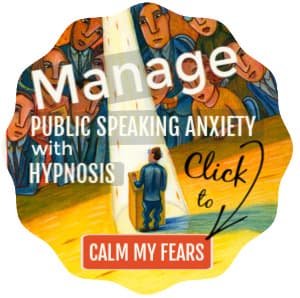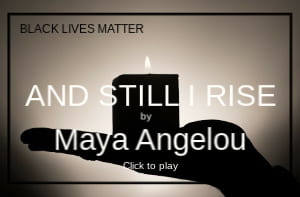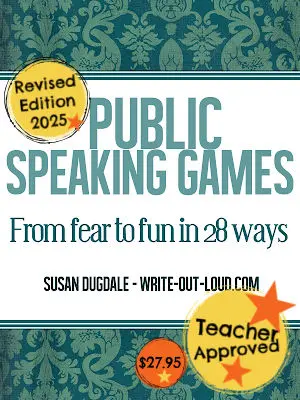- HOME ›
- Speech examples ›
- Icebreaker speech [Toastmasters]
Icebreaker speech for Toastmasters
Help to master your icebreaker step by step (with examples) from topic choice, to preparation, to delivery
By: Susan Dugdale
Congratulations!
You've made a decision to become a better communicator and joined Toastmasters International, the worldwide educational organization specializing in communication, public speaking and leadership skills.
And now you have an icebreaker speech to prepare! ☺
Use the page index to find what you need quickly
- What is a Toastmasters ice breaker speech? - Its time allocation and purpose
- How to find a topic and structure your speech - 5 ways to find a topic you really want to talk about, with examples
- How to brainstorm to easily generate ideas to fit your topic, with an example
- How to take the ideas from your brainstorm and transform them into the words you'll actually say. Before and after examples for each of the 4 main points forming the body of the speech, and the transitions between them.
- How to write the conclusion of your icebreaker, with an example
- How to write the introduction, with an example
- An example icebreaker speech - full text, with audio
- What to expect of yourself when you give your ice breaker - 5 tips to help
- How your icebreaker will be evaluated - an explanation of the evaluation process
- Links to official Toastmaster icebreaker resources
What is a Toastmasters ice breaker speech?
Essentially the icebreaker is an introductory speech of 4 - 6 minutes long.*
It's the first prepared speech you give as a member of a Toastmaster's Club, and the first project on your chosen Toastmaster Pathway. (For more about the eleven Toastmaster Pathways.)
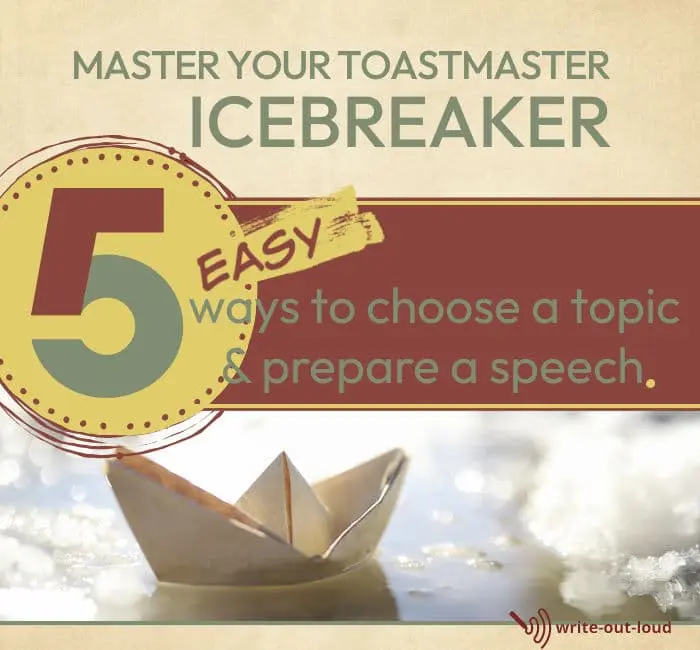
What's the purpose of an icebreaker speech?
The purpose of the speech is twofold.
- For the club members its purpose is to help them get to know you. They want to find out who you are as a person and what your speaking strengths and aspirations are. That will help them, help you reach them.
- For you, the speaker, the main purpose is to begin the process of becoming a competent, confident communicator.
That is, learning to be comfortable while out of your comfort zone, sharing and being your authentic, beautiful, vulnerable self in front of others.
Your icebreaker marks an official starting point on your quest to become a better public speaker, regardless of the Pathway option you have selected. It's the first assignment on all eleven of them!
* When I gave my own ice breaker speech, I think I set a new club record: 9 plus minutes long! Way, way over the time limit.
I attempted to share the complete, and fascinating, story of my entire life! (I'm exaggerating, but you get the picture.)
I hadn't realized a sliver, a small slice, was all I had room for because I hadn't timed myself when I practiced my speech at home. Luckily for me, they were very kind about it.
What will the topic of your icebreaker be?
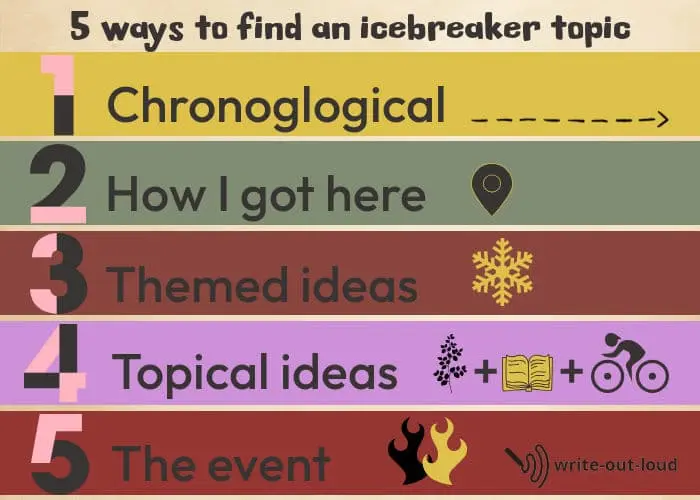
Below are five ways of finding a topic for your first speech. The one you choose will also help you structure your speech.
The subject matter of your icebreaker is simple. It is about you: who you are.
You'll find it's reasonably easy to tell which way, or method, of the five will be best for you. It's the one triggering a rush of ideas and personal stories.
The topic you settle on should be one you feel comfortable talking about in front of the people at your Toastmasters club, whom as yet, you don't know very well.
1. Chronological - a timeline
A chronological topic is a timeline of carefully selected past experiences that have shaped your life from birth to the present time.
For instance, a potent childhood memory - one that you can still see, hear and feel today, followed by something from your high school days or your college years, and then maybe something about significant friendships/relationships, hobbies or interests and a workplace event.
2. How I got here
This topic is about looking back, isolating, and sharing the series of events leading to you standing in front of a Toastmaster audience giving your icebreaker speech.
For example:
- being asked to be best man at a friend's wedding, delivering the speech adequately but not as well as you would have liked
- wanting to speak up at work but lacking the courage to do so
- realizing that not addressing the anxiety you felt around speaking in public was holding you back from many of the things you wanted to do.
3. Themed ideas
These are topic suggestions united by a common thread.
Pick one that resonates and see where it takes you. Ideally you want three main points - all of them linked to the theme you've chosen.
- Values - 3 important things I value most in my life
- Seasons - Winter, Spring, Summer or Autumn (Fall) - activities, food, nature...
- Love - my 3 greatest loves - food, family and music
- Family - what family life means to me - acceptance, shelter, challenge
- Celebrations - Christmas, birthdays, weddings, graduations - what they mean to me
- Travel-journeying - local, national, international - what it means to me, what I've learned, interesting people I've met
- Heroes - the different people who have inspired you - who they are, how they inspired and why
- Sport - the role of sport in my life, the different ways it has made who I am for better or for worse
- Friends - snapshots of the role of friendship in my life from the time I was a little kid to now
- Dreams - what they are, how they've changed - refining and reaching them
- Challenge - the 3 biggest challenges in my life so far
- Sayings/quotations I live by - For example, "This too will pass" - 3 examples of times when "This too will pass" was the reminder needed.
4. Topical ideas for your icebreaker speech
This is a series of snapshots (topics) illustrating different and significant aspects of your life.
For instance:
- your passion for organic gardening,
- the pleasure you get from volunteering in your local high school's holiday program, and
- how you have learned to live with a chronic health condition like myalgia encephalomyelitis (ME)
5. The event - a pivotal, life changing event
The core of this method is a major happening - one that completely disrupted and overturned life as you knew it.
For example:
Events affecting many:
- a natural disaster - an earthquake, a fire, flooding, or a cyclone that destroyed where you lived.
- a man-made disaster - a war, terrorism, a chemical or oil spill, transport failures, building collapses, arson...
Or a personal event affecting a smaller group of people, yourself and those close to you:
- the unexpected loss of your job
- the death of someone important to you
- becoming dangerously ill
- being the recipient of unexpected good fortune
- being in an accident, and the path to recovery
- meeting a mentor who opened your eyes to your own potential...
This speech has two parts: before the event, and, after it.
What will you talk about? Brainstorming to pull together ideas
Once you've chosen a topic, your next step is to begin generating the ideas you think you may like to cover in the main part of your speech - the body. The easiest and best way I know to do that, is to brainstorm.
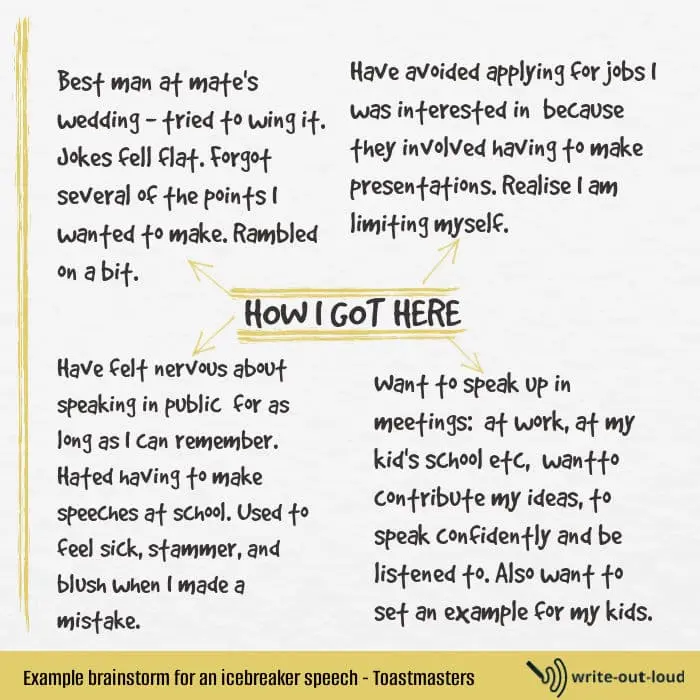
How to brainstorm ideas for your icebreaker
Put your selected topic prompt in the center of a blank page or document just as I've done in my example above. Then free write.
Jot down all the ideas that come to you as quickly as you can, giving each of them their own space. Note as much as you need to trigger the thought or memory about it again, if you decide to use it.
Don't write full sentences or stop to get the spelling right.
If you need help to get going, try asking yourself 'how', 'when', 'why', 'what', 'when' and 'who' questions about your chosen topic.
For example: How did I get here? What happened? When did it happen? Why did it happen? Who was involved?
When you feel you've exhausted all the possibilities, stop.
Reviewing and selecting your material
Review your ideas. Then select the 3 or 4 strongest, and most suitable of them, remembering that you:
- only have 4-6 minutes to speak,
- still have to flesh these points out,
- need to add transitions to move smoothly between them,
- and haven't added an introduction or a conclusion yet.
Some, even though you might like them, may have to go!
What you choose will become the main points you make in the body of your speech.
An example icebreaker speech - step by step
In my step-by-step example below, I've used the prompt or topic suggestion 'how I got here'.
How to get from brainstorming to a first draft
To illustrate the process of getting from brainstorm notes to a first draft of the body of your speech I've used the same points I put into the image of an example brainstorm above.
I've put them into the order I want to speak about them. Now they need more detail plus transitions between them to enable the audience to follow you easily as you move from one point to the next.
To make the changes I made easier to see I've given you the 4 main points unworked, (as they are in the brainstorm image), and followed that with their reworked form.
Between each main point there's a transition - a sentence or two connecting them together to make it easier for listeners to follow.
Once the first draft of body or heart of the speech is done, we'll move to adding the conclusion and the opening or introduction.
1st main point from brainstorm - unworked
Best man at mate's wedding - tried to wing it. Jokes fell flat. Forgot several of the points I wanted to make. Rambled on a bit.
1st main point reworked
"A while ago, my best friend - the guy who has seen me through good times, bad and ho-hum in-between times since we were kids goofing around on skateboards being super cool, asked me to be his best man at his wedding.
A great honor! Yeah, I'll do that. All good, I said.
And it was, until it came to the speech.
To be frank, I procrastinated and left it too late. I did read a whole lot of other people's best man speeches and I made myself some notes about what I thought would be good to share. I even found some jokes which I thought would be great to use.
But did I practice?
No. I kept putting it off, telling myself I wanted to be authentically spontaneous. And I was, but not in the way I wanted. I forgot most of the points I wanted to make. Worse, I rambled on, and the jokes went down like lead balloons.
You know that saying about there being no such thing as a failure? That it's an opportunity to learn? That was one of those."
Transition between the 1st and 2nd main point
"The next, and second reason I'm here is the result of a reassessment of what I've been doing and where I'm going in my working life."
2nd main point from brainstorm - unworked
Have avoided applying for jobs I was interested in because they involved having to make presentations. Realize I am limiting myself.
2nd main point reworked
"It's a long story, and luckily for you, too long for a brief icebreaker speech. The short version is being honest with myself about why I've been avoiding applying for positions that would both fit and extend my skillset. These are jobs I know I'd enjoy! And I know I'd do well.
So why haven't I applied for any of them? Because they involved having to make presentations, having to speak in front of others. I was limiting myself out of fear."
Transition between the 2nd and 3rd main point
"And that fear, is what brings me to my third reason."
3rd main point from brainstorm - unworked
Have felt nervous about speaking in public for as long as I can remember. Hated having to make speeches at school. Used to feel sick, stammer, and blush when I made a mistake.
3rd main point reworked
"I've felt nervous about speaking in public for as long as I can remember.
I hated having to make speeches at school. I dreaded going back after the holidays because inevitably the teacher would set a speaking task: 'what I did on my vacation' or 'what I love most about Christmas'. Begging to be allowed to say home did not work. My tough love parents would have none of it.
So, there I'd be standing in front of my classmates doing my best to not visibly shake, speak without stammering, or blush when I made a mistake. And failing."
Transition from 3rd main point to 4th main point
"I'm sharing this rather unflattering picture of myself as a person anxious to avoid being the sole focus of everyone's attention because I know, it's well passed its use by date."
4th main point from brainstorm - unworked
Want to speak up in meetings: at work, at my kid's school etc, want to contribute my ideas, to speak confidently and be listened to. Also want to set an example for my kids.
4th main point reworked
"Protecting myself by NOT doing something I rationally know will benefit me, and others, is no longer an option. I want to step up and speak up: at celebrations for family and friends, in meetings: at work, at my kid's school, and other places in the community. I want to contribute my ideas, to speak confidently and be listened to."
Adding a conclusion to your icebreaker
Now that we've finished with the first draft of the body of the speech we're going to work on the conclusion. (After that we'll add the introduction.)
To end your first speech strongly, briefly, sum up your major points and, if you wish, pop in a call to action or use a quotation before returning to your opening idea to close.
For more on how to memorably end a speech: 3 examples of strong conclusions (with audio), plus examples of weak endings: ones commonly used because the speech has not been adequately thought through and rehearsed.
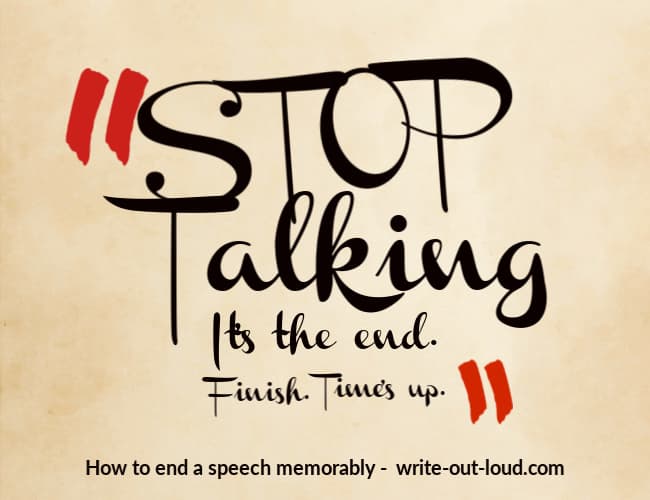
In addition to the conclusion itself you need a transition to it to prime listeners the end is coming soon.
The transition below, foreshadows the close of the speech.
Transition from 4th main point to conclusion
"Now, with your help, I want to be the change I want to see in my world, for myself, and also for my kids. I want to set them an example they'll be proud of."
The conclusion or closing statement
"Fellow toastmasters, thank you for being here for me. Thank you for listening. I've survived! The ice is well and truly broken, and my journey has begun."
Adding a greeting and an introduction to your icebreaker
Now let's move to the beginning: the introduction.
What can you say to grab the audience's attention immediately? Ideally when you open your mouth to speak, the first thing that comes out of it has them riveted! They are all ears, leaning forward in their chairs, eager to know more.
Your opening is an opportunity to make a great first impression, but how do you do that?
The answer to that, is that you experiment. Perhaps you try one or two, or even three openings before settling on one of them.
Think about the purpose of this speech. Think about how you felt about getting ready for it? Put some of those thoughts down, and then play with them.
The introduction I've prepared below came from thinking through the body of the speech. It contains references to public speaking anxiety, and because this is a first speech in front of people who have clearly survived the ordeal of giving their own icebreaker speeches, I decided to use that experience. It's easy to understand and relate to!
It opens with a rhetorical question which immediately engages the audience. That's followed by an invitation/instruction to further that engagement by nodding in agreement. And finishes thanking them for their response.
For more on opening a speech effectively: How to write a speech introduction| 12 of the best ways to start.
Immediately following the introduction is the transition taking us to the first main point in the body of the speech.
(Note how the word 'survival' is returned to in the conclusion. It returns listeners to the starting place - completing the circle.)
Introduction to this sample icebreaker speech
"Would you be surprised to know I nearly didn't make it here tonight?
I wonder how many of you experienced a moment or two of panic before giving your icebreaker speech. Just nod to let me know."
{The speaker pauses - and looks around at the audience nodding their heads.}
"Thank you, that's very reassuring. You've survived, so probably I shall too."
Transition to body of speech and first main point.
"I am here wobbling rather nervously in front of you for three main reasons which I'll share with you.
Here's the first."
The complete icebreaker speech example
And now here is the whole speech - introduction, body and conclusion without all the section headings, explanations and asides. I've given it a title: 'Stepping up to speak out'.
It's 617 words long and will take approximately 4 minutes to say depending how slowly or quickly you speak. (For more on the number of words per minute in a speech.)
Listen | audio of example ice breaker speech
If you'd like to listen to a recording of it, click: "Stepping up to speak out". The voice you'll hear belongs to me: Susan.
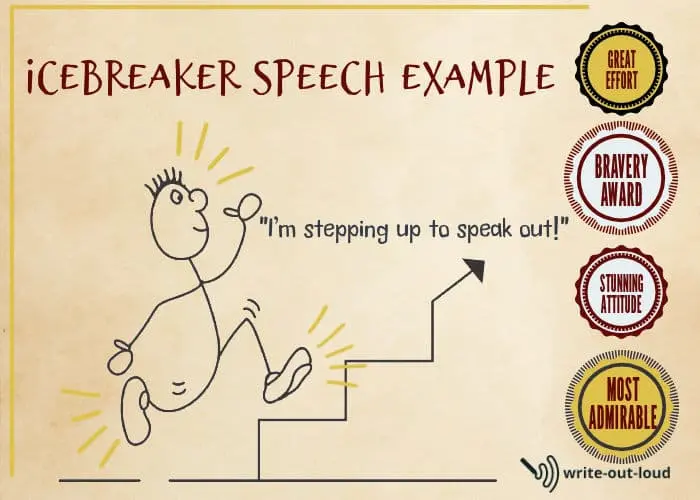
Stepping up to speak out
Would you be surprised to know I nearly didn't make it here tonight?
I wonder how many of you experienced a moment or two of panic before giving your icebreaker speech. Just nod to let me know. {pause - look around}
Thank you, that's very reassuring. You've survived, so probably I shall too.
I am here, wobbling rather nervously, in front of you for three main reasons.
Here's the first.
A while ago, my best friend - the guy who has seen me through good times, bad and ho-hum in-between times since we were kids goofing around on skateboards being super cool, asked me to be his best man at his wedding. A great honor! Yeah, I'll do that. All good, I said.
And it was, until it came to the speech.
To be frank, I procrastinated and left it too late. I did read a whole lot of other people's best man speeches, and I made myself some notes about what I thought would be good to share. I even found some jokes which I thought would be great to use.
But did I practice? No. I kept putting it off, telling myself I wanted to be authentically spontaneous. And I was, but not in the way I wanted. I forgot most of the points I wanted to make. Worse, I rambled around in circles and the jokes went down like lead balloons.
You know that saying about there being no such thing as a failure? That it's an opportunity to learn? That was one of those.
The next, and second reason I'm here is the result of a reassessment of what I've been doing and where I'm going in my working life.
It's a long story - too long for a brief icebreaker speech. The short version is being honest with myself about why I've been avoiding applying for positions that would both fit and extend my skillset. These are jobs I know I'd enjoy! And I know I'd do well.
So why haven't I applied for any of them? Because they involved having to make presentations, having to speak in front of others. I was limiting myself out of fear.
And that fear, is what brings me to my third reason.
I've felt nervous about speaking in public for as long as I can remember.
I hated having to make speeches at school.
I remember dreading going back after the holidays because inevitably the teacher would set a speaking task: 'what I did on my vacation' or 'what I love most about Christmas'. Begging to be allowed to say home did not work. My tough love parents would have none of it.
So, there I'd be standing in front of my classmates doing my best to not visibly shake, speak without stammering, or blush when I made a mistake.
I'm sharing this rather unflattering picture of myself as a person anxious to avoid being the sole focus of everyone's attention because I know, it's well passed its use by date.
Protecting myself by NOT doing something I rationally know will benefit me, and others is no longer an option. I want to step up and speak up: at celebrations for family and friends, in meetings: at work, at my kid's school, and other places in the community. I want to contribute my ideas, to speak confidently and be listened to.
With your help, I want to be the change I want to see in my world, for myself, and also for my kids. I want to set them an example they'll be proud of.
Thank you for being here for me. Thank you for listening. I've survived! The ice is well and truly broken and my journey has begun.
What to expect of yourself - 5 tips that may help
1. Ask for help - talk to your mentor
If you want help to get started, ask for it. As a new member you will have been assigned a mentor, usually one of the club's senior members.
Your mentor is someone you can talk to about any concerns you may have. Don't be shy. They've volunteered to help people like yourself. They expect and want to. Ask.
2. Be real in your expectations about yourself
Don't expect yourself to be stunningly eloquent, effortlessly amusing and assured. While there's always an outside chance you may be, commonsense says otherwise.
This is the beginning of your Toastmaster journey, and beginners generally have things to learn. That's why you're here and preparing an icebreaker!
It's more than OK to be where you are. It's wonderful. Because you've made the commitment to become a better speaker.
3. Use a little self-deprecating humor
If you can, use a bit of humor. Don't take yourself so seriously you lose sight of the potential to poke a little gentle fun at yourself.
Self-deprecating humor used carefully lets your audience know you see and understand yourself. It creates connection. You'll be laughed 'with'.
For example:
"My goodness, what fun I've had with this icebreaker! My fridge has never been so clean. Three times in the last two weeks.
My bedroom closet has been sorted. And I've devised an amazing, color-coded filing system for all the useful brochures we collect whenever we go on vacation. They were higgledy-piggledy in a box covered with dust on the top shelf in the garage.
I stun myself with what I'll do when there's something important, new and challenging to be done."
Please do not publicly beat yourself up
Healthy self-deprecating humor is not publicly parading what you perceive as your heinous physical, character, or mental flaws, and whipping yourself for them. That will disturb your audience.
No one likes to hear or see a person set themselves up to be laughed 'at'. It's very uncomfortable.
4. Rehearse - practice your speech
Run through your speech out loud several times and then, once you're familiar with the flow of it, record it and/or video yourself using your phone.
When you play it back, you'll hear, and see, where you need to make adjustments, and you'll find out if you've got too much to say or too little.
You have between 4 - 6 minutes to make your speech. That's approximately somewhere between 480 words if you are a slow speaker and 960 words, if you speak for longer and at a faster rate.
If you find your speech is over the time allowance, or under it, you'll want to sort it out well before you go to your club meeting.
If you're inclined to get anxious about presenting, rehearsal will help. Because you've 'done' your speech multiple times before delivering it for the club members, you'll feel less pressured. For your own sake, please make the time to practice.
For more: How to practice public speaking | 9 'fabulously' (☺) effective ways
5. What to do if you 'um' and 'ah', and get flustered
Losing your place in your notes or cue cards, if you're using them, or something as simple as mispronouncing a word, might be enough to trigger a rush of panicky feelings.
In a situation where we already feel pressured, our hyper-sensitized mind can quickly turn minor blips into major stumbling blocks. The very best thing you can do for yourself is to stop. Take several very large deep breaths, and then, keep on going.
Please do not apologize. You have nothing to apologize for. You are a learner, a beginner, and beginners make mistakes. That's how we progress.
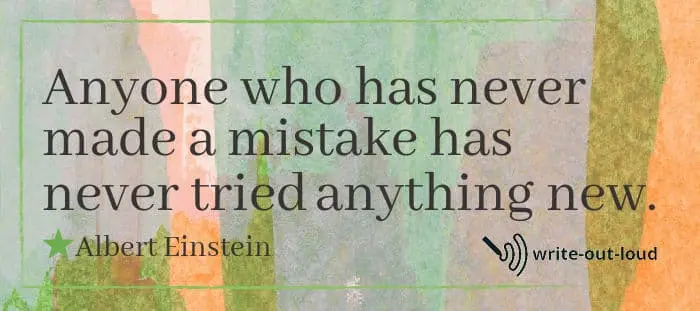
The people at your Toastmaster club fully understand that giving your icebreaker speech can be daunting, because they've been where you are. They're on your side! They want to help you achieve your public speaking goals and will do everything they can to help.
How your icebreaker speech will be evaluated
Part of the value of joining a Toastmaster's Club is getting constructive evaluations of each assignment you complete. That starts with your icebreaker.
An experienced fellow club member will be asked to watch and listen carefully as you present your first speech. Their task is to take notes which they will use as the basis of a verbal evaluation they'll deliver later in the meeting.* (You'll also receive a written one from them at the end of the meeting.)
Put any anxiety about being evaluated aside
If you're nervous about being evaluated, particularly about getting personal feedback in public, don't be. You will definitely not be pilloried, laughed at or made to feel inadequate in any way.
Toastmasters love icebreaker speeches and the people who give them. They go out of their way to ensure their new members are nurtured and cared for. Afterall it's people like you, who keep the clubs going and successful. They need you, and they understand the delicate art of giving and receiving useful evaluations.
You, the person, giving the speech is not being evaluated. The speech you deliver is. That distinction and separation is stringently upheld.
* Part of the success of Toastmaster's is the way evaluations given. Everybody at the meeting hears them, which gives everybody an opportunity to learn from them. (And in true Toastmaster form, even the evaluations the evaluators give are evaluated! The Toastmaster ethos encourages reaching for excellence in every aspect of its operation.)
What aspects will your evaluator be evaluating?
If you know in advance who is going to be your evaluator, say hello, connect, before you give your speech. Make some time to talk through the evaluation process with them.
Share what your goals are for your icebreaker, and what you'd particularly like them to watch out for. That will help reassure you that you're supported and in the right place to learn.
The aspects you can expect your evaluator to comment on are your content and delivery.
For example:
Regarding your content:
- How well structured was it? Was there an opening, a body and a conclusion?
- Was it interesting for the audience?
About your delivery:
- How comfortable did you appear to be in front of an audience?
- Did you engage with your audience? Did you use eye content, appropriate facial expressions, gesture and body language?
- Did you use vocal variety effectively?
- Did you speak clearly?
Depending on your club, you may also get feedback (either verbal or written) from other audience members. All of it is valuable, even if you disagree with some of it!
You'll use it to help you decide what aspects to focus on in future speeches to become the better speaker you want to be.
For more speech evaluation| giving and receiving meaningful feedback
Links to official Toastmaster resources for icebreaker speeches
What are Toastmaster Pathways?
An introductory overview of the Pathway concept and each of the eleven paths. As an example, here's four of them: Presentation Mastery, Dynamic Leadership, Innovative Planning and Persuasive Influence. The first assignment on every path is giving an icebreaker speech.
Overview of an icebreaker speech
This link is to a video: the official Toastmaster's overview of an icebreaker speech. It very carefully segments the process into four parts - as you can see in the screen shot below.
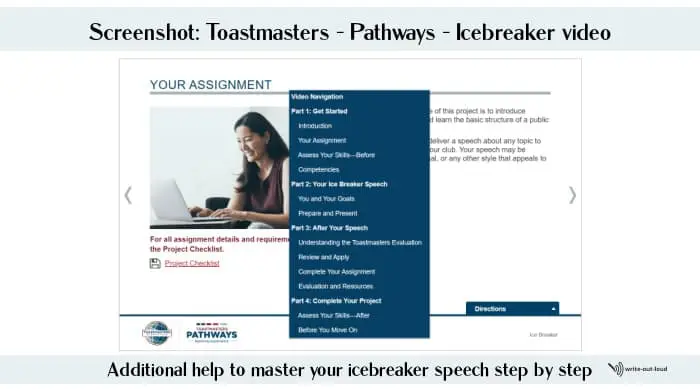
In addition to information about each part, you'll find links to useful printable documents for example, a speech outline worksheet to help you plan your icebreaker, and a sample evaluation form.

